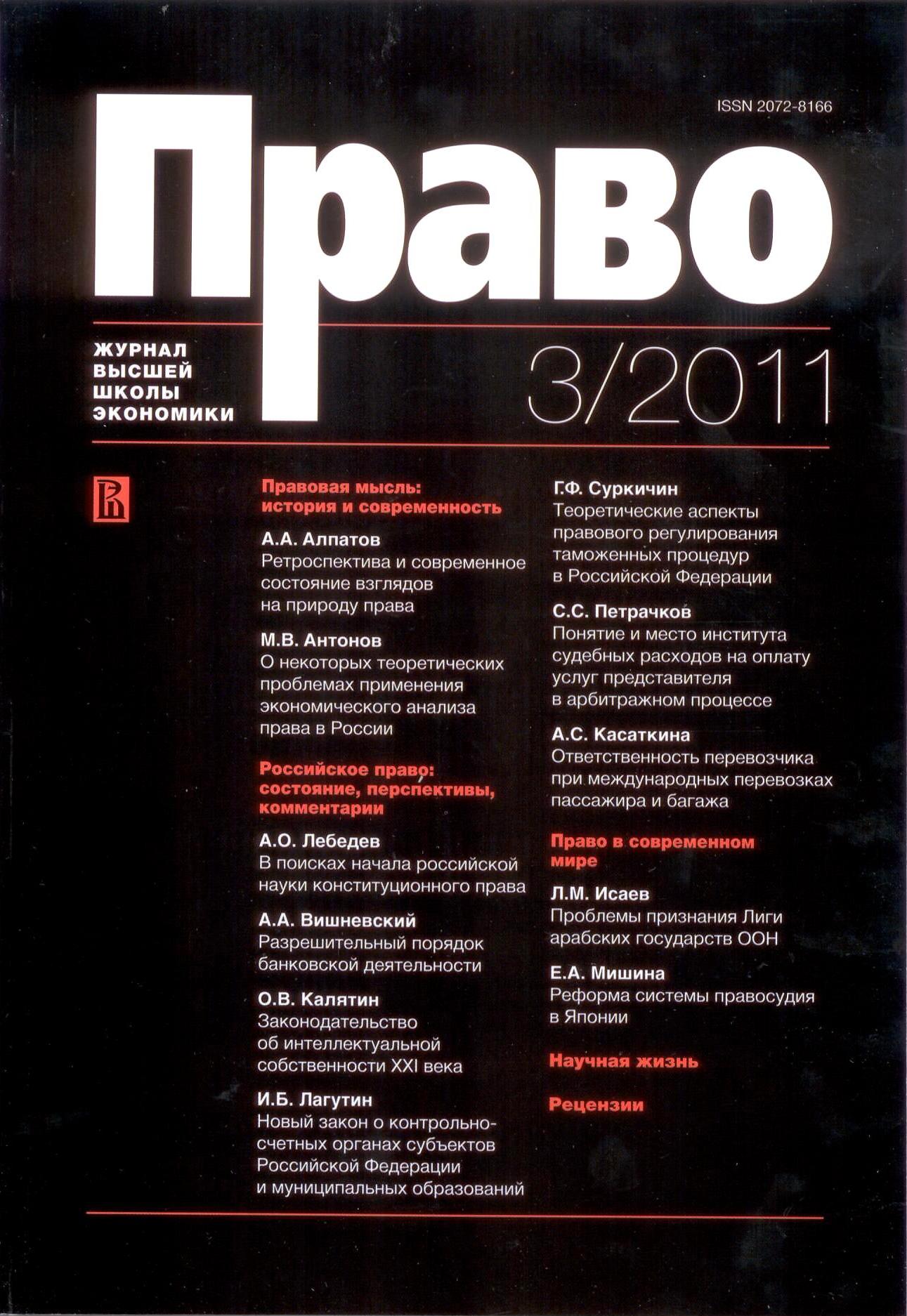Trends in XXIst Century Intellectual Property Law
Abstract
The paper studies the intellectual property legislation. A special attention is paid to the further development of legal regulation in this area. The author makes predictions on the development on this area in the near future, analyzes looming threats and challenges which the intellectual property legislation will face. In terms of the tendency, the latest amendments to the RF Civil Code are studied. The development of the intellectual property legislation has clear stages typical of the majority of countries with a similar development level. A detailed analysis shows that the changes in the intellectual property legislation reflects some common tendencies relevant to design a legal mechanism meeting the demands of current society. The modern stage of the legislation has a number of interconnected tendencies involving every area of intellectual property. As to the objects, this is the emergence of new objects, their variety, sophisticated nature and platforms for combined application. A point one should be aware of is that a certain object is mentioned in the legislation only a new necessity of society in creating a special legal regulation is formed. First of all, economic factors are crucial as the desire of business to protect its interests in this area is a factor promoting to the changes in the legislation. Groups of subjects are getting more complicated in terms of both corporate authors and the distribution of their functions but the role of agents (shown in the spread of cases of bringing them to responsibility) and people arranging the process of creating such objects. This requires new variants of distributing liability and changing rules of intellectual property protection. The author notes a tendency of the transition from the permissive approach to compensational. It is shown in the frequent cases of free use of intellectual activity results and introducing various cases if obligatory licensing. This approach is accompanied with facilitating the turnover of the rights and a wider range of interests. This and other tendencies pose serious challenges. The fact that the circumstances have been reflected in the draft of the RF Civil Code brings hope to develop an efficient system of intellectual property legal regulation.
Copyright (c) 2011 Law Journal of the Higher School of Economics

This work is licensed under a Creative Commons Attribution-ShareAlike 4.0 International License.


















